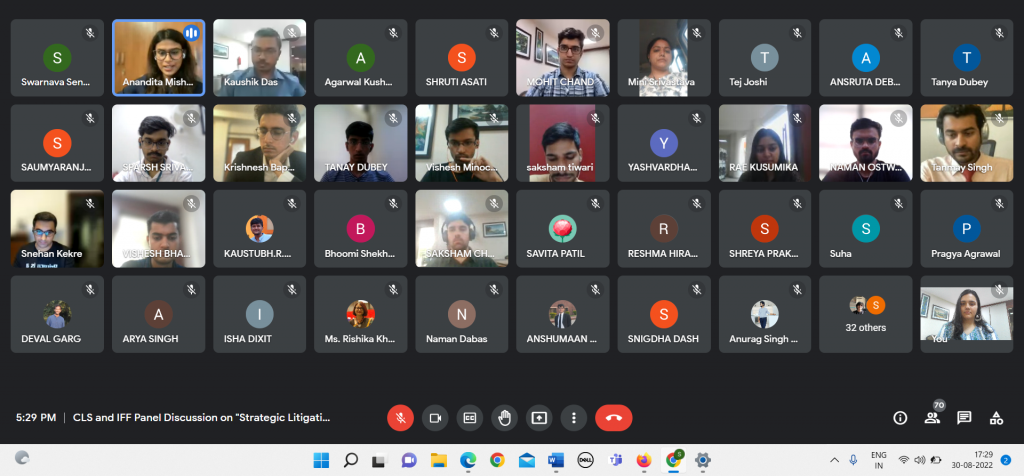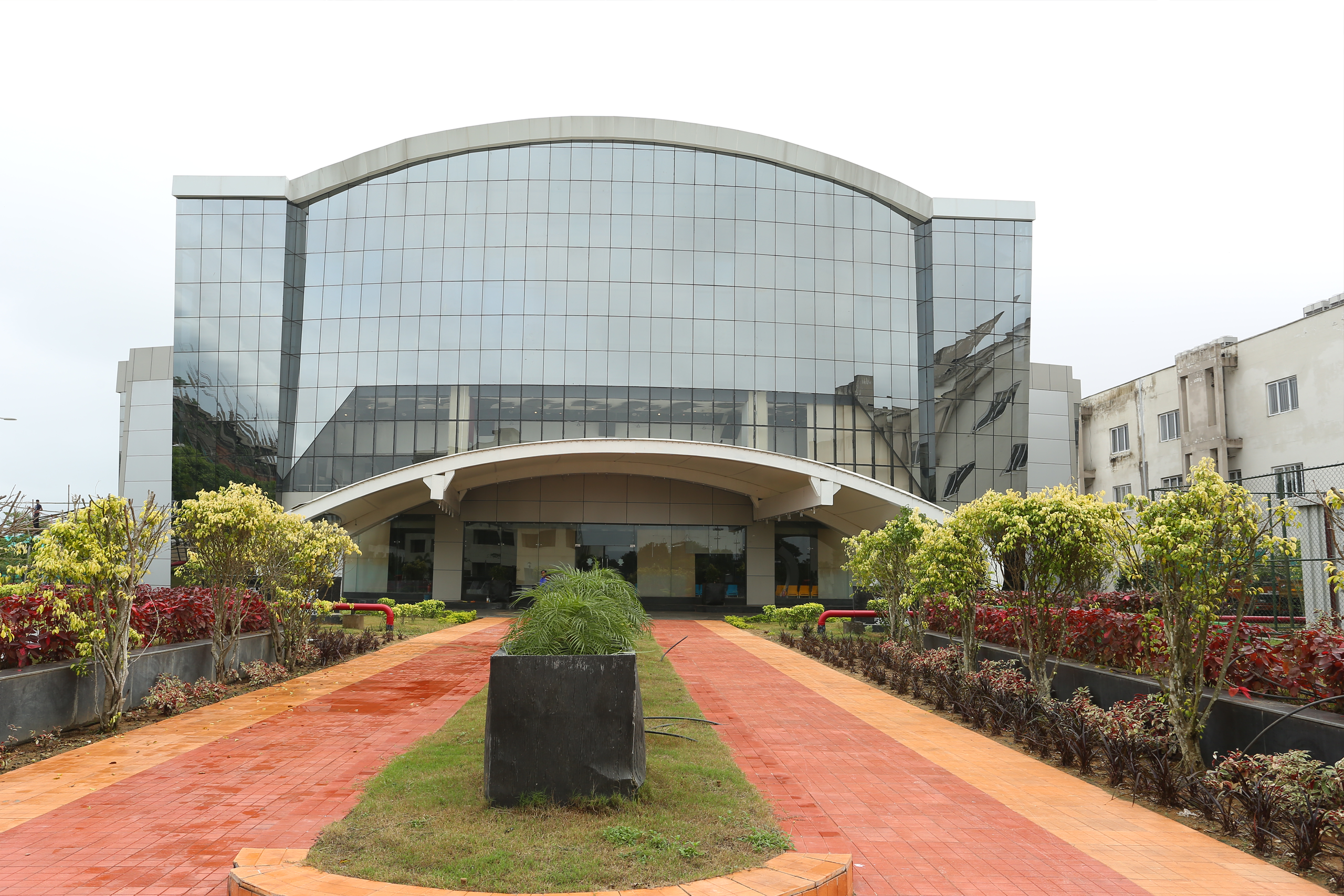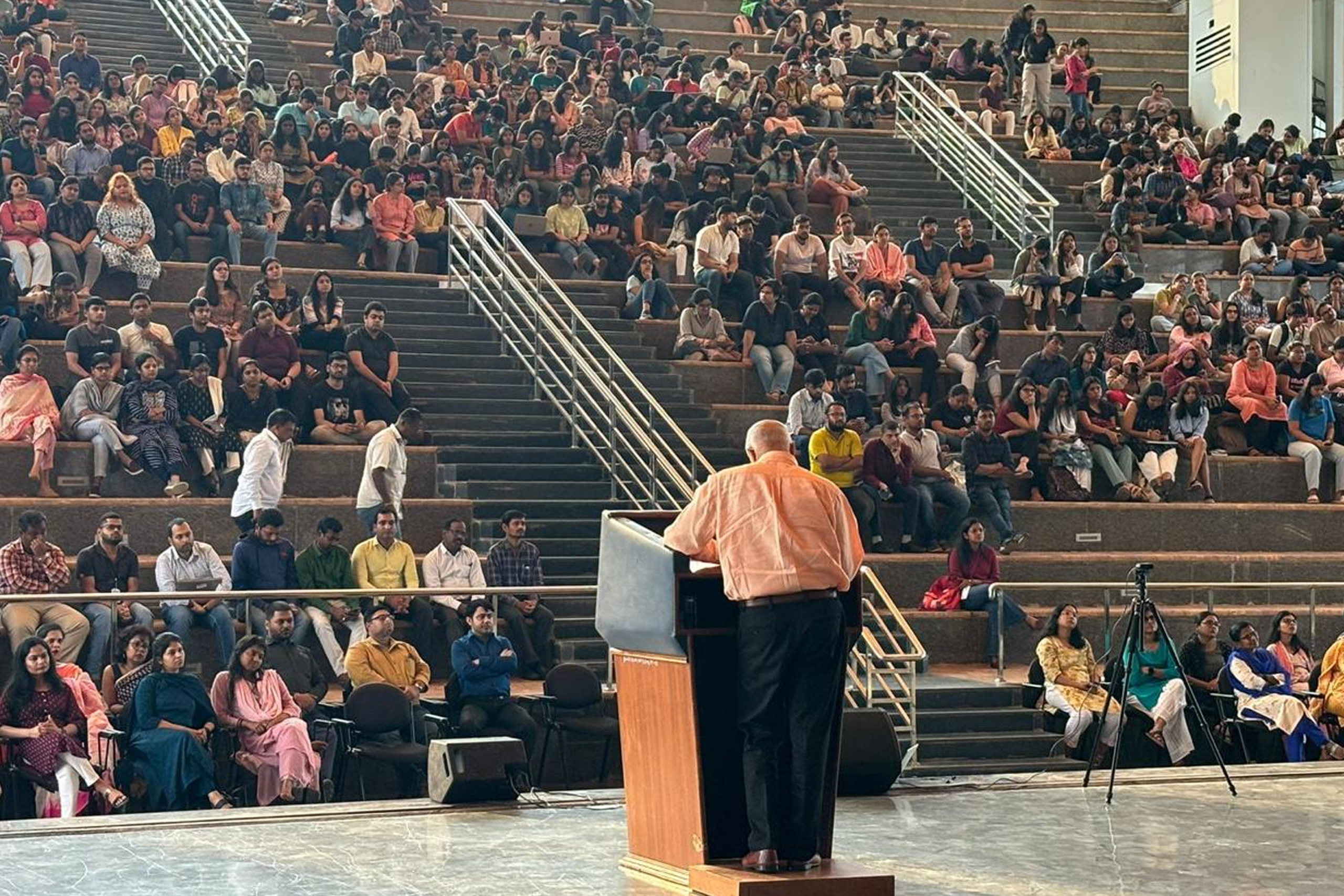“Strategic Litigation on Digital Rights: Examining Issues of Online Content Moderation, Internet Shutdowns and Intermediary Regulations”
06 Sep 2022
CLS – IFF PANEL DISCUSSION ON ‘<‘<STRATEGIC LITIGATION ON DIGITAL RIGHTS: EXAMINING ISSUES OF ONLINE CONTENT MODERATION, INTERNET SHUTDOWNS AND INTERMEDIARY REGULATIONS'<
Date: 30th August 2022?????????????????/p>
Platform: Virtual Meeting (Google Meet)
The Constitutional Law Society (CLS) of National Law University Odisha, in collaboration with the Internet Freedom Foundation (IFF), successfully organized a panel discussion on the topic ‘Strategic Litigation on Digital Rights: Examining Issues of Online Content Moderation, Internet Shutdowns and Intermediary Regulations’. The lecture was delivered by Mr. Tanmay Singh (Senior Litigation Counsel at IFF), Ms. Anandita Mishra (Associate Litigation Counsel at IFF), and Mr. Krishnesh Bapat (Associate Litigation Counsel at IFF). The Internet Freedom Foundation?”IFF”) is a registered charitable trust which advocates to protect and advance constitutional freedoms in a digital society. It works across a wide spectrum of issues, with expertise in free speech, electronic surveillance, data protection, net neutrality, and innovation; and aims to champion privacy protections, digital security, and individual freedoms in the digital age.?/p>
Senior Litigation Counsel Mr. Tanmay Singh commenced the discussion by introducing the relevance of Internet Shutdowns in the 21st century. He focused on the legality of internet shutdowns and expressed that in the current statutory scenario the legal boundaries are blurred. The specific provisions that are governing these shutdowns are pre-dated. We, as individuals do not have an express fundamental right to the internet but are rather deriving our rights based on other fundamental rights, i.e., the Right to Freedom of Speech and the Right to Trade and Commerce. This indirect guarantee of our Right to the internet provides a lot of scope to the government for exploitation. This happens because our fundamental rights are not absolute and can be limited Constitutionally, or through other legislations. Section 5(2) of the Indian Telegraph Act provides ‘Public Emergency‘ and ‘Public Health‘ as the basis for Internet Shutdowns. He walked the audience through two scenarios: the first case was about an internet shutdown to curb riots and the second one being an internet shutdown to prevent cheating in an examination. The arbitrary causation cited by the Government in the latter accounts for major shutdowns. He concluded his argument by providing various other challenges such as the government providing last-minute notices, which cannot be disputed in courts due to Courts deeming the issue as a minute affair.
The second panellist, Ms. Anandita Mishra explored the concept of Content Moderation and the relevance of free speech over the internet. She opined that the flow of information is sought to be restricted by the government and all political parties. The content is moderated by social media platforms and the Government. She explained the intermediary problems that arise in the process: Problem of Scale and Problem of Complexity, i.e., the enormous number of complaints and the language barrier respectively. This also extends to the individuals receiving redressal along with facing a dearth of information regarding the specifics of Artificial Intelligence and the working of algorithms. She discussed two primary ways by which content is taken down: One, according to Section 65, IT Rules 2000, blocking of content after receiving a complaint and initiating a process within the website structure, and two, by invoking Section 69A, IT Act read along with 2009 Blogging Rules. But the government surpasses these two methods and passes mass orders to block multiple accounts on social media platforms. These do not follow the due methods set under the intermediaries and set up by the government itself. She stressed upon the non-compliance by the government on the moderation of content and its exploitation of the gap provided in the statutory boundaries and reiterated the need for firmer legislation and court directions.
The 3rd panellist for our discussion, Mr. Krishnesh Bapat elaborately discussed data privacy by evaluation based on three questions: What is privacy and how is it important? How can the government and the companies violate privacy? What is the discussion regarding the Personal Data Protection Bill? The discussion started with the tracing of the situation which led to the substantiated legal status of the term ‘privacy’ in the landmark case of Justice K. S. Puttaswamy (Retd.) and Anr. v. Union of India and Ors. Even though the right to privacy was recognised legally, it was not defined yet. Right to Privacy is instrumental, which means that even though any type of organisation is just stealing your data but not using it, you might feel violated, as privacy gives control to people over their lives. Government has broad powers of surveillance and can monitor a very wide range of information without judicial authorisation. The extent of such surveillance is also not defined. If the government surveys illegally and then it is proven so, no item in that survey is admissible according to a judgement of the Bombay High Court. The newest way of privacy breach as explained next is linking other documents and accounts to Aadhar. This is also challenged in Delhi High Court in various cases.
The government under Sections 5 and 69 also does not reveal proper surveillance lists. The Personal Data Protection Bill did solve some of these problems but it was recently withdrawn. Even though the Government is becoming flexible, we have a long way to go. The panellist concluded by saying that there is an ardent need for awareness as people start listening only after there has been a large scale and serious data breach.
Questions from the audience concluded the panel’s final discussion section. The attendees had several thoughtful questions in response to the lecture. They talked about Aadhar’s legality as well as the weak government data protection infrastructure. The discussion on the panel and in the audience focused on the current private data protection bill and its significance in India. They emphasised that the cost-benefit analysis showed that the Bill’s minimal protection was preferable to no protection at all. The interactive session with the audience ventured into topics such as the application of the right to privacy and the right to be forgotten, the concept of end-to-end (E2E) encryption and its future in light of recent changes including WhatsApp’s challenge to the IT Rules. Questions from the audience also covered the Government’s formal resistance to privacy and data bills. The panellist ended the discussion on a positive note for the development of online speech and privacy in the expanding era of an informed and vocal public.






